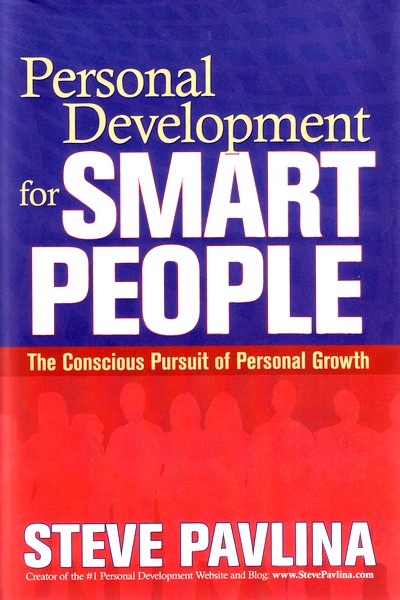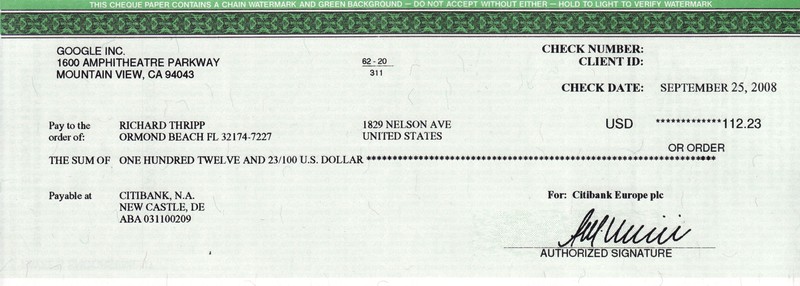Personal development is universal, so it includes photographers. A lot of photographers are stuck in a lot of ways. They take too many photos, entangle their intuition with technicalities, refuse to rise above spectatorship, or abandon their creativity for the comfort of rigid rules. I did all these for some time, so I want to help others rise above these limitations.
Too many photos
Most photographers live with a scarcity mindset. This means they believe they must be taking photos every moment, in case they miss the ‘perfect’ moment. There is only one ‘perfect’ moment (scarcity), so it’s important not to miss it.
I can tell you this because I used to be one of these people, and I meet fellow photographers who are stuck in the same mindset all the time.
Back when I was in photography class, I met a lady who took 1500 pictures of a wedding in a span of two hours. I’ve been fortunate enough to avoid weddings, but I can tell you now that I would be taking 1500 photos, even if the wedding was all day. I might take 1000, but I can assure you they’d mostly be duplicates. I’d be deleting the worst and keeping the best on the spot, and by the end of the day I’d be down to 200 photos. Good photos.
What was even more unfortunate about this girl was that she made no effort to cull her work. “Culling” means picking out the best. I slaved for hours over my portfolio, narrowing down hundreds of photos to my best 30. Some good photos didn’t make it because they just didn’t fit in with the other ones. I spent more time ordering them by color / concept than choosing, because the order is far more important than the content.
It’s alright if you take 1500 photos for a wedding, even if you keep them. But when you do that, know that you’re going to bore the heck out of people by showing them all, and you’re going to put in many hours weeding out the crud.
If you don’t weed out the weeds, you’ve got nothing. All people will see is a bunch of weeds and they’ll walk away before you get to the good stuff.
The abundance mindset
Ironically it’s the abundance mindset that leads you to taking fewer pictures. Your work becomes much more interesting too, because you’ll produce a few great pieces instead of dozens of mediocre ones. Oftentimes you’ll actually take more photos, but they’ll be focused. Instead of doing 50 shots of every plant in the garden, do 200 of a rose from every possible perspective. Learn from it, pick out the best one (I do mean one), and discard (hide) the rest.
For photographers, the abundance mindset says that you’ll have so many great photo opportunities, it’s alright not to pursue them all. It’s even alright to ignore a beautiful sunset just to focus your camera on the light on the trees. If you’re in the scarcity mindset, you’re dead-set on the sunset because you’re afraid you’ll never see one like it again. But really, what you get is the same dull photo that everyone else has already taken, while you could’ve been using the sunset for something better, like portraits of passersby (the lighting is great), refractions off a leaf, the clouds behind you, or the light and shadows around you.
The abundance mindset lets you focus on one thing while ignoring everything else. If the space shuttle is launching right in front of you, take pictures of all the people taking pictures instead of the shuttle itself. Take a photo of the launch site ten seconds after lift-off. No one is doing that.
Believing in abundance lets you go for a walk in a “boring” neighborhood yet bring home a picture like this:

Whatever you think is ‘boring’ isn’t so boring after all. I hear photographers complain all the time that there is nothing interesting around them, but really they aren’t even trying.
If you’re not willing to look harder for subjects (still life or people) in your current environment, go somewhere else. Go to different places, talk to different people, take different pictures. Go on vacation. Become a nomad. It isn’t that hard, and if you believe it is you’re only limiting yourself.
Hands-off photography
Other photographers believe they should be hands-off. “Just take pictures, don’t interfere with people or nature.” Photograph what you see. Really, what these people are doing is trying to absolve themselves from effort. They’re scared of directing people on how to pose, so they’d prefer just to leave it up to their models.
But the fact is, your models don’t know what to do. As the photographer, it’s YOUR job to tell them what to do. The word “photography” implies mere observation, but it’s so much more than that. As a photographer, you create the scene. Even if you don’t have to tear down buildings or dirty your hands with makeup, you do have to direct people and the environment. Even if you don’t touch anything, you’re still directing the scene through composition. You can get far away and use a telephoto lens, or close-up with a wide-angle lens, and you’ll get two very different photos of the same subject under the same light. You can take photos at eye level, or you can lay in the dirt and point your camera up. You can include things, you can exclude things, you can manipulate light, all without entering Photoshop.
Any wedding actually involves three people: a man, a woman, and a photographer. It’s really a marriage of three. You have to tell the couple how to pose, where to stand, what to wear; perhaps even what day to plan their wedding for or where to hold it. If it’s a Florida summer, retreat indoors. People like sunshine, but cloudy days make for better lighting. These are all going to be important if you want to create good memories, because memories are about emotion, not facts or record-keeping.
Embracing flexibility
I used to have this unstoppable urge to stretch the histogram across the gamut from light to dark in every photo. This means I’d edit contrast fairly aggressively, and then whatever was left over I’d leave up to the computer’s “Auto Contrast” tool. Every picture should touch (0,0,0) (pure black) and (255,255,255) (pure white) in at least one pixel.
This worked fairly well for a while. I did cool stuff like Raindrops and Sky’s Camouflage. Even Two of Us Against the World, which most people think of as soft-toned, is stretched across the whole gamut.

This became very limiting, though. When I got to pictures like Cherry Tomatoes (above), it couldn’t look good with the tomatoes going to black, but that’s the only decision that would keep in step with my beliefs. I compromised on that one; the darkest tone is about (110,20,0), with 90% of the colors being in the upper fourth of the luminance scale. This way, I could continue criticizing other photographers (in my mind) whenever I’d see anything with dull contrast.
It turns out, dull contrast is often good. Going back to the basketball hoop photo, if I would’ve done what I used to do, the sky would be right up against pure white. But with subdued colors, it’s much more appealing and interesting (the sky doesn’t go past 230/255).
What this means is: be flexible. No rules are hard and fast, and everything can look good in different occasions. Don’t use rules or formulas to determine that; use your eyes and your innate sense of beauty. Which brings us to…
Stop making sense
Psychologists say women like mental pictures, men like real pictures. This (supposibly) is because men are left-brained while women are right-brained. This means that “visual learners” fall into the left-brained category.
For 90% of photographers this is false. Unless you’re in technical or journalistic photography, you’re going to be dealing with the right-brain (emotions) most of the time. This falls under of the umbrella of artistic photography—most people just call this photography, because it’s what the medium has become associated with.
But even if you’re a photo-journalist, a big portion of your time (if you’re good) will be about emphasizing emotion. If there’s no emotion, create it. You can ‘cheat’ without editing the image. Use a different angle, or convince the people in the scene to act differently, consciously or subconsciously.
The purpose of my photographs is to create emotions within my audience. It doesn’t matter if the pictures are true. It doesn’t matter if I tore up weeds or if I used a medicine dropper to add droplets to a leaf. It doesn’t matter if I completely Photoshopped the colors so they look nothing like the actual scene. It doesn’t even matter if the scene is a physical impossibility.
What matters is creating feelings within my viewers, be it affection, love, awe, repulsion, emptiness, bravery, coziness, timelessness, intrigue, courage, freedom, oneness, or inspiration. While I may not identify it as such, each photo has one main emotion behind it, and sometimes a second one, which either complements the first or contrasts with it in an ironic way. This isn’t something you can purposely manufacture; I never even thought about it this way till I wrote this paragraph. It’s just there.
This means that photography falls on the right side of the brain. Emotions are more important than logic.

The sunset above doesn’t exist. The sky had the same colors and appearance, but it was much less brilliant. I emphasized the colors in Photoshop. You might be able to do the same thing with a polarizing filter or settings in-camera, but you’d always be creating something better than reality.
Most people, seeing this photo, either revise their model of reality to include the existence of sunsets like this (90%), or ask me if I manipulated the photo (10%). The last group I tell yes, so they can appreciate this sunset while knowing it isn’t ‘real’ (whatever that means).
If you act ashamed that you edit your photos a lot, your viewers will assume it’s a shameful thing. Don’t do that. I removed trees, houses, and streetlights in the sunset above, not because I wanted to, but because I had to. I’d always prefer just to take a new photo than to spot-edit an old photo, but this one was worth it.
Most of the time I do editing across the whole photo, like contrast, brightness, and color temperature. I’ll do localized dodging and burning (brightening and darkening), but I try to avoid spot editing, not for ethical concerns, but because I’m lazy. Spot editing is hard, and if I have to spot-edit a photo to take out power lines or trees, I may as well start over with a new photo.
Be insanely interesting
This picture makes no sense:

People love this when they see it, and even more so when I give out print copies. They’ll try to interpret all kinds of meanings into a solid black image, and just discussing it raises their personal awareness. Obviously it’s a picture of nothing (I left the lens cap on) but because I’ve gone through the effort (and possibly cost) of printing it, titling it (The Night of Eternal and Unrelenting Darkness), and giving it to someone, it must have meaning.
I’m actually having 100 printed out (I get them through thievery so it’s no big deal), one for each of my students in calculus and biology, and I bet it will be my most popular (at least most talked about) photo. The reason is that it’s insanely interesting. Nobody else does stuff like this (much less handing them out). If I posted to Facebook or deviantART or YouTube, it would probably be removed as pointless ‘spam’, merely because such originality scares the deletionists.
To be insanely interesting, you should create something from nothing. If everyone did this, it wouldn’t be interesting. Most people are very uncomfortable with this. They want to create something from something. This is because most people have a subconscious desire to be directed / told what to do. Personal development is all about flipping that on its head.
Being overly technical
What happens to a lot of students when they get into photography school? They start worrying about things like the golden triangle, film speed, the zone system, apertures, focal length, vignetting, the rule of thirds, sharpness, filters, white balance, color temperature, optical distortion, color calibration, sensor size, chromatic and spherical aberration, file formats, resolution, signal-to-noise ratio, refraction, demosaicing. The beautiful photographs on their walls are replaced by crazy formulas like (1 / f) = (n – 1) * ( (1 / R1) – (1 / R2) + ( ( (n – 1) * d) / (n * R1 * R2 ) ). They went to college because they had a talent for artistic photographs, but that talent totally disappears when they get there. They fail miserably. Grades are irrelevant; you’re failing with A’s if you’ve lost your heart.
Why does this happen? Because people naturally want to replace personal responsibility with assignments and directions. Instead of creating beautiful photographs, you create photographs that are beautiful according to other people, because you want to be told what to do. That’s why you went to school to begin with. No one forced you. Plenty of great photographers have never set foot in a school of photography.
I remember when the colors on my computer monitor started drifting, and my edits wouldn’t turn out right in any prints. They’d be close, but not perfect, and I couldn’t get the thing calibrated by eye because my eyes aren’t good enough. I took a whole month off searching for a cheap colorimeter and a dual-head video card to use with my new LCD monitor (which, incidentally, is no good for photo editing; I keep all editing to my bulky CRT). I did find one eventually, but I would’ve been better off working on new photos too, even if I had to go back over and re-edit them. When you get too caught up in technicalities, you produce no art. Technicality is all about perfection, but if you make perfection the goal, you’ll never get anywhere. You have to balance analysis with creativity.
Overly technical people get caught up in the things that ‘should’ look beautiful but simply don’t. Take a look at this rose:

Doesn’t it look nice, sublimely colorful, etc.? If a pink rose is pretty, an even pinker rose must be prettier, right? In fact, following the technical mindset to the extreme, beauty is proportional to color saturation. So this rose must be ten times more beautiful:

Of course, it’s terribly ugly. A flower doesn’t become more beautiful when you dye its petals—in fact, it loses its beauty post-haste. But you’ll see stuff like the above in photographers’ portfolios. Usually, they’re either really new to photography, or they’ve been doing it for a long time but stagnating in technicalities.
The proper response to analytical photography is not analytical photography with intuition and creativity tacked on. It’s creatively intuitive photograph, tempered by technical analysis. That means that yes, it’s alright to purposely put your subject one-third into the frame (I do it all the time), but just don’t become too extreme regarding technicalities. When you break the rules, don’t even think about it. They’re not rules anyway.
Not being technical enough
You do have to be technical to a certain extent. You can’t leave everything up to chance, or put all your faith in your “eye” without learning a certain amount of technical concepts (exposure, f-stops, zooming, composition, shutter speed, grain, etc.). A great photo is no good badly exposed and printed.
Particularly in film photography, there is a lot of technical grunt work you must deal with by hand. You don’t want to use any old developer or fixer, and you should use a timer, a timing chart, measure the temperature of your chemicals, etc., because if you mess things up, you could end up with nothing, especially if any light gets to your negatives before you develop the latent images. Once you’re done with this process, enlarging the images isn’t so dangerous, but light-sensitive paper is still expensive, so a mistake might cost you 70 cents.
I prefer to just stick with digital photography. You have as much control in film photography, but you don’t have an “undo” button, and I can’t get by without that (yet). It’s like writing in pencil vs. writing in pen. Except digital cameras are a bit better than pencils.
Photographers vs. gear collectors
It’s okay to collect cameras, lenses, gadgets, and relics. But only if you’re going to use them to advance your photography hobby. If you’re not, be sure they’re really cheap, because a bunch of lenses do nothing for you if you can’t find the shutter button.
A lot of self-dubbed photographers don’t take pictures so much as they collect picture-taking gadgets. These people think about becoming real photographers occasionally, but then they get stuck in self-doubt.
These are the types of people who will put off photography for years waiting for the technology to get better. Things are getting cheaper all the time; that doesn’t mean you should stay out of digital photography forever. Buy a camera now and take a big ‘loss’ in a few years. It isn’t really a loss anyway, because nothing that lets you work on your art is a loss.
Also, these people will look back at what they did in the past with a cheap camera, wishing they could retro-actively change it to an expensive camera. You can’t go back and do that, and even if you could, you can’t improve by imitating your past work (tell that to Ketchup 2 and Ketchup 3).
Don’t collect gear. Use gear to take photos. Whatever camera you have now is good enough to do something good with. You just need some creativity, not more stuff.
Keep on snapping.

















